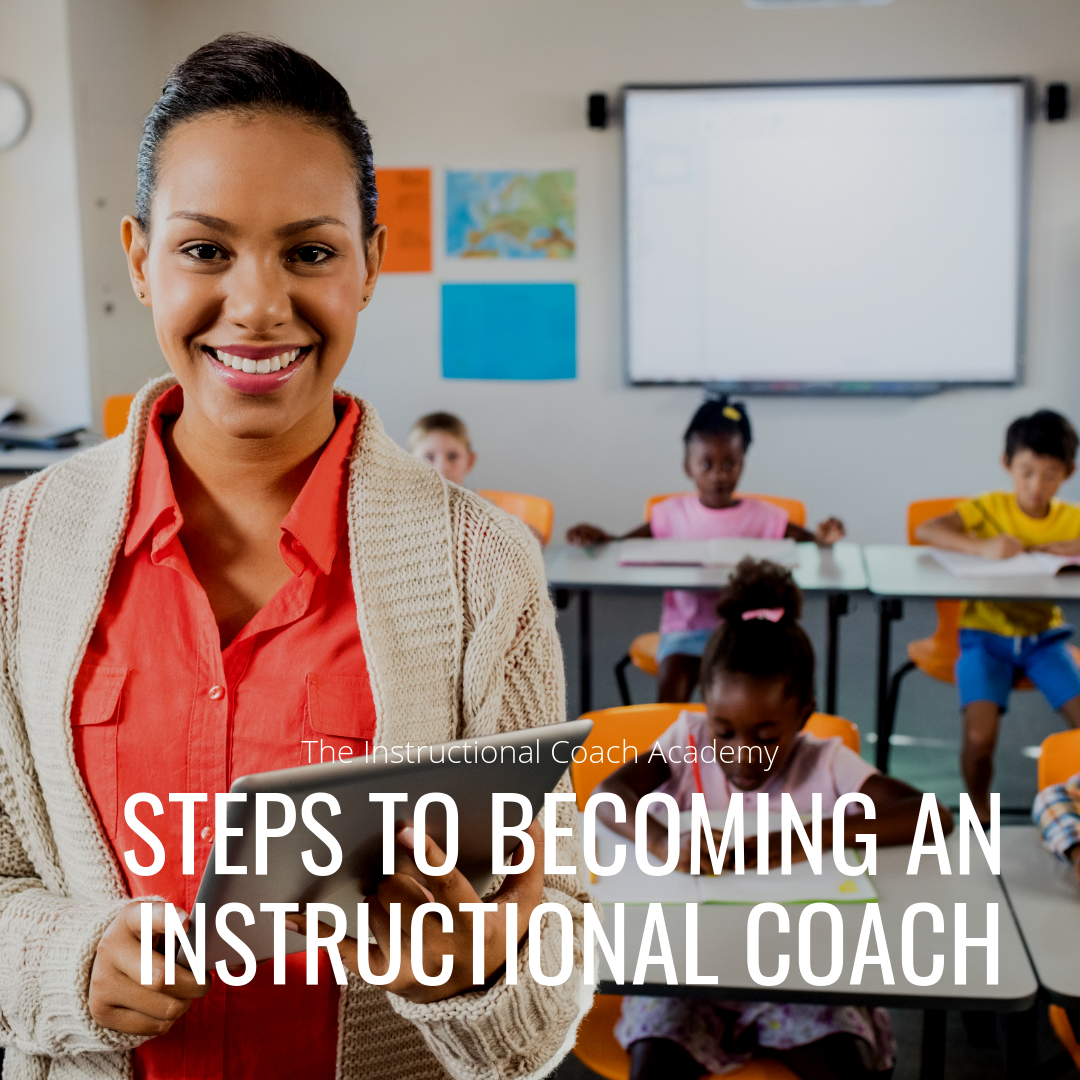A typical response when I tell other educators that I am an Instructional Coach is, “Wow! That sounds awesome. How do you become a coach?” The response that I give them is usually the abbreviated version of the steps I had taken to become a coach; however, becoming a coach is not something that happens overnight. It is a gradual process—at least, it was for me. There are various intentional steps, sometimes unintentional, that prepare one to coach others.
Here are some:
1. Become a mentor—This is something that I had done in about the fifth year of my teaching journey. If someone had told me that about eight years from now, I would be coaching a whole school of teachers, I probably would not have believed them; however, here I am, an Elementary Instructional Coach. Mentoring other teachers, novice and veteran, is a form of coaching. Mentoring is providing support to teachers, building relationships, collaborating, co-planning and much, much more. If you haven’t been a mentor to a teacher and coaching is something that you see for yourself in the future, I suggest it for you. It will help you become an effective coach and show you the benefits and challenges in helping another adult learn and grow. Although rewarding, it can be very different.
2. Become Team Lead/Grade Level Chair—Becoming a leader for a team can be overwhelming and stressful, but coaching at times can be too. If you are thinking about being an Instructional Coach over a school or multiple grade levels of teachers, you need to be ready to lead and support. The duty of the Grade Level Chair is a great stepping stone in becoming an Instructional Coach. Here’s why—you are the liaison between your team and the principal. An Instructional Coach is also the liaison between teachers and the school principal. Becoming a Grade Level Chair teaches you to be a great communicator, support your team members, and lead/facilitate meetings. This job will definitely lead you on the path of becoming an Instructional Coach and teach you valuable skills needed in the future.
Becoming a Grade Level Chair teaches you to be a great communicator, provide support to your team members and lead/facilitate meetings as well. Share on X3. Become Engrossed in Professional Development—While I realize that as a teacher, the acronym PD is not on your list of favorite things to do. Professional development will be an essential part of your job as a coach. As a teacher who wants to be an instructional leader in the school, I would definitely jump on opportunities to attend professional development and share learning with the staff. If you do not like leading professional development, this is your time to practice. Yes, practice. It is one thing to get up in front of children and teach. It is a whole other ball game to stand in front of your colleagues, teach and provide professional development. Do you think the students are bad? Whew. Get in front of a group of teachers who think the professional development you provide is a waste of their time. However, it is extremely rewarding when teachers want to learn and grow. The more you practice at this, the better you will become. One tip is always to be a learner and to allow yourself to grow as well.
It is one thing to get up in front of children and teach. It is a whole other ball game to stand in front of your colleagues, teach and provide professional development. Share on X”
4. Become Knowledgeable about Instructional Coaching—Take time to learn about what Instructional Coaching is all about. I am not saying to take courses or apply to be Coaching Endorsed (although some colleges do provide that). However, I am saying that if you want to become a coach, you have to know what the job entails. It is extremely important to read many articles, and books, and listen to podcasts about the life of an Instructional Coach. Here are a few below:
–The Instructional Coach Academy, The Many Roles of an Instructional Coach, What is an Instructional Coach?, What is It Like to be an Instructional Coach?
Books- The Art of Coaching by Elena Aguilar, Student-Centered Coaching: The Moves by: Diane Sweeny, Instructional Coaching by: Jim Knight
Podcasts- Instructional Coaching Corner, Educators Lead Episode 107: Jim Knight-How to Have Better Conversations, Arkansas: Eight Key Components of Coaching
5. Become Open to Positions Being Posted—Around February or March, be open and on the lookout for positions being posted in your county and in the surrounding counties. You do not know what is out there if you are not actively looking. This does not mean that if a position becomes open that you will be ready to jump to apply. However, it gets you in the mindset of the possibility. I always tell myself, if it is for me, it is for me. If it is your time to become an Instructional Coach and if, after taking these steps towards this path, you still want to go for it, I say take the leap. What are you waiting for? Go for it!
These five steps are merely just possible pathways into the role of an Instructional Coach. Does this look the same for every Instructional Coach? Of course not. But these are steps that worked for me and planted seeds for my growth as an Instructional Coach. Some of these seeds were intentional, and others I might have needed a little push. I would like to say that this Instructional Coaching job fell in my lap—but had I not taken these leadership roles and opportunities, I would not be adequately prepared for this job. Make sure you are ready for the job. Prepare yourself in order to support teachers.

![[Instructional Coach Chronicles] Working With a Teacher You Don’t Like](https://theinstructionalcoachacademy.com/wp-content/uploads/2018/04/the-instructional-760x400.png)

I would love to become an instructional coach.Currently I am working as a high school teacher with 25 yrs of experience. Help me realize my dreams
I’m interested in learning more about what you do. I have a passion for helping other children through supporting teachers.
I am currently working on a master’s degree in Supervision and Curriculum Development. I have been working in the field of special education for over 20 years. My goal is to provide instructional coaching for teachers working with students who have intellectual disabilities that are enrolled in transition/life skills programs that facilitate students 18-22 years of age. I would appreciate more information as to how to further pursue this. Thank you.